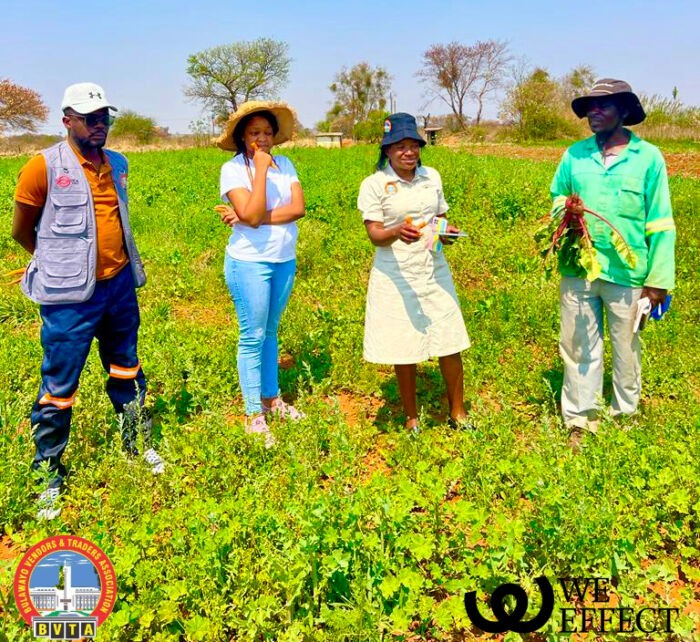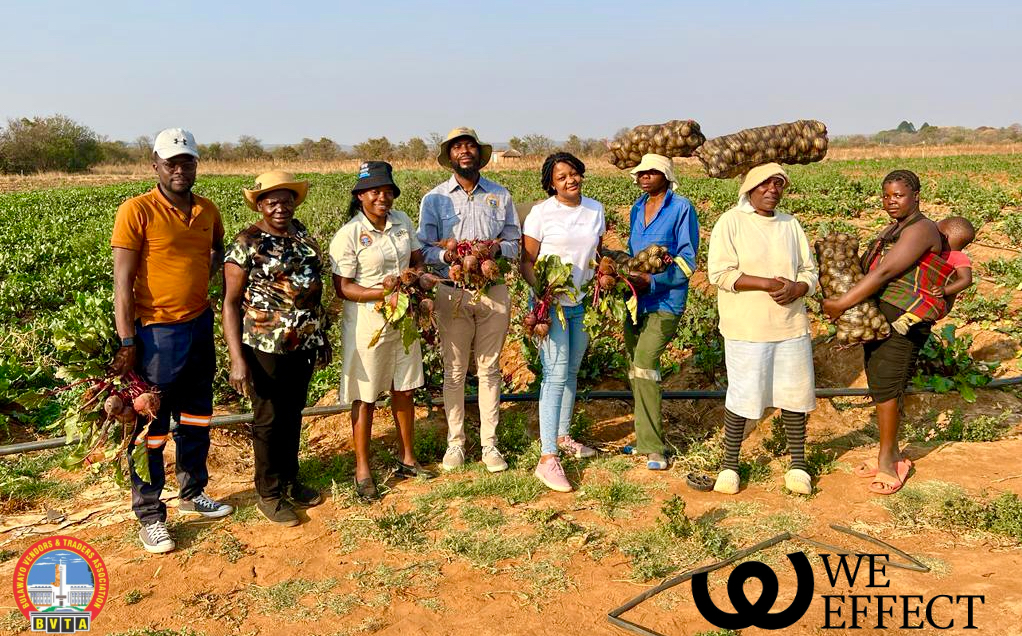There are several factors that hinder market linkages for smallholder farmers in Zimbabwe, Bulawayo in particular. These range from poor infrastructure to a lack of information about markets and a lack of access to credit and other financial services. To respond to these challenges, Bulawayo Vendors and Traders Association (BVTA) is implementing the Market Aggregation Linking markets and Innovation (MALI) with support from the Embassy of Sweden through We Effect in Southern Africa.

With the MALI project BVTA seeks to innovatively improve access to markets and income for growth oriented small holder farmers, linking them with informal traders in Bulawayo, and eventually facilitating access to wider markets that include the supermarket chain stores and exporting to neighboring countries like Botswana which has a demand for onion produced in Zimbabwe.
The project is anchored on uprooting the causes of low incomes in rural and urban areas from small-scale agro-based activities due to limited market access, and market linkages between smallholder farmers and urban informal retailers on agricultural products. Accordingly, this project seeks to innovatively and intentionally craft disruptive solutions that increase the urgency to establish sustainable market linkages between smallholder farmers and informal traders.
The project is being implemented in Matabeleland North (Umguza), Matabeleland South (Matobo & Umzingwane) and Bulawayo and targets men and women smallholder farmers and informal traders (of all ages), 70% being women, 15% being men and the other 15% being youths and others. This target is inclusive of People with Disabilities, and it shall not discriminate on race, sexual orientation, ethnicity, or language in line with BVTA’s diversity policy and 18 years being the minimum age of onboarding into the project.

During the carrying out of the needs assessment and market survey the team found out that there is lack of coordination among farmers, this has led to surplus production of certain produce which ends up flooding the market and lowering its premium price. There is need for awareness raising and education on market linkages to enable farmers to have knowledge on how to export their produce as well as revision of policy frameworks to allow them to also produce GMO products or control the flow of cheap GMOs produce imported from South Africa which undermines the selling of local organic produce. There is a gap on understanding value addition and trainings around it will be essential.
BVTA is a non-profit and 12,000 membership-based organization of informal traders dedicated to creating a just and inclusive society by giving urgency to informal sector challenges and facilitating sustainable livelihoods and business development. BVTA’s work is anchored on creating a conducive business environment through cultivating entrepreneurship, identifying existing policy and legal limitations through research facilitating access to markets, and enhancing the development of businesses to be resilient.
